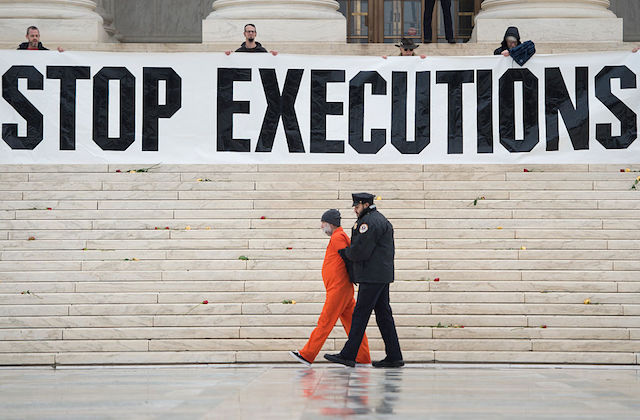The Trump administration is eager to move forward with a plan to execute four convicted murderers, Reuters reports. On Monday (December 2), the United States Department of Justice (DOJ) went to the United States Supreme Court to ask for the right to resume the death penalty at the federal level, a practice that has been on hold for 16 years.
The DOJ’s application to the Supreme Court was submitted mere hours after an appeals court denied the agency’s plan to move forward with the executions, the first of which was scheduled to take place on December 9. The DOJ referred to the district court’s ruling as “fundamentally flawed” in its appeal to the highest court. According to Reuters, a three-judge panel of the U.S. Court of Appeals for the District of Columbia Circuit supported a district judge in shutting down the DOJ’s request:
rnt
U.S. District Judge Tanya Chutkan last month issued a stay putting on hold the planned executions until a long-running legal challenge to the department’s lethal injection protocol can be resolved. The appeals court found that the administration had “not satisfied the stringent requirements” to block Chutkan’s ruling.
It is unclear when the Supreme Court will hear the DOJ’s case, but reinstating the death penalty in federal cases is clearly a priority for the Trump administration. Attorney General William Barr announced plans in July to resume the practice, according to Reuters:
rnt
Most executions in the United States have been carried out by individual states, although an increasing number of them have stopping using the death penalty.
t
The last federal execution took place in 2003. Since then, protracted litigation over the drugs historically used in lethal injection executions prevented the government from continuing the practice.
Shawn Nolan, a lawyer for the four men potentially facing federal execution, spoke to Reuters about the lower court’s ruling against the DOJ. “The courts have made clear,” he began, “that the government cannot rush executions in order to avoid judicial review of the legality and constitutionality of its new execution procedure.”
